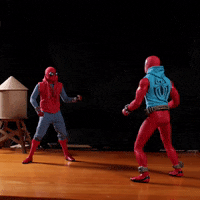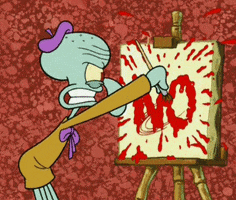What the f*** IS Imposter Syndrome!?
I have been procrastinating and putting off writing this blog for a few hours now. I’ve been staring into the abyss that is social media, hooking myself into Tiktok rabbit holes - avoiding the real task at hand. Writing about Impostor Syndrome.
Let me be totally real with you for a second. As I’ve been drafting this blog. Chatting to some amazing humans about their experiences, gathering thoughts and doing research; I have felt my impostor creeping in and hanging over me like a heavy blanket of doubt.
I love writing. I love telling stories and sharing them through the written medium. Whether that is short stories, poetry or dabbling in scripts; I adore writing. It’s a kind of therapy for me.
But what I find difficult is navigating through intrusive thoughts that make me feel uneasy and lack confidence in my abilities as a creative.
I never went to university or drama school and I don’t have a degree to my name. If you know me, I don’t really like to go by the book. I like to explore different avenues and paths to try to get to the places I want to be.
Although I am happy with the choices I’ve made, the steps I’ve taken to make progress in my career as a creative; I always have these questioning thoughts quizzing the validity of what I bring to the table.
I remember sitting in the Music Hall at the National Youth Theatre building in June of 2019. I was surrounded by a sea of theatre directors, facilitators, company managers and assistants and I thought to myself –
‘How the f*** did I get here?’
‘Why am I in this room?’
‘I shouldn’t be in here’
Then the session started with the lead facilitator asking us to get into a circle. A theatre classic. We went round, introducing ourselves to the room, our pronouns and what course we were going to be working on that summer. I remember feeling this intense spread of thoughts but one that anchored in me was ‘I’m not qualified to be here’.
I absolutely was.
I had completed the training NYT had asked for us to undertake before being chosen as an assistant. I had done my Safeguarding training. But I had never led a space before in my life. I knew that in just a few weeks’ time I was going to be working with 30 young performers, taking them through exercises, running drama games with them, helping put together their final sharing and being their pastoral support throughout the course.
The task felt daunting and overwhelming. It was over that weekend I discovered – I had major Impostor Syndrome.
So, what is Impostor Syndrome?
VeryWell Mind describes Impostor Syndrome (IS) as “an internal experience of believing that you are not as competent as others perceive you to be”.
Yep, that sounds about right to me.








